Welcome back to Backlog Busters, a column dedicated to clearing our never-ending video game backlog. Today we’re covering one of my most anticipated games of last year, Stray Gods: The Roleplaying Musical from Australia-based developer Summerfall Studios.
Here’s what you need to know: Set in an urban fantasy world where Greek Gods live among us, you play as a young woman named Grace who is granted the powers of a Muse after her predecessor’s untimely demise. Using her newfound powers, she has one week to gather allies and evidence to prove her innocence.
Developed by: Summerfall Studios
Played on: Steam
Length: 7 hours
A musical murder mystery with technical finesse
Some days it feels like every possible game in existence has already been made, and every game is just an iteration of another game. Then a title like Stray Gods: The Roleplaying Musical comes along and blows everything out of the water. As a lifelong fan of Greek mythology and musicals, and an avid narrative gamer, it felt like Summerfall Studios reached into my soul and yanked out a game made just for me. And I loved every second of it.
In this interactive musical adventure, you play as a college dropout named Grace who is thrown into a world of magic, myths, and Greek gods. Unfortunately, it’s because she’s being falsely accused of murder, but don’t all great stories begin with a little death? As the player, your choices determine how Grace uses her newfound powers, which characters she allies with, and how her story ultimately ends.
Unlike your typical choice-based adventure, major moments in Stray Gods culminate in huge musical numbers where you can shape the outcome verse by verse. Each lyric you choose changes the story, and sometimes even the entire song’s genre and direction. Paired with fully voice acted and beautiful hand-illustrated scenes that look straight out of a graphic novel, Stray Gods truly feels like you’re living through a real life musical.
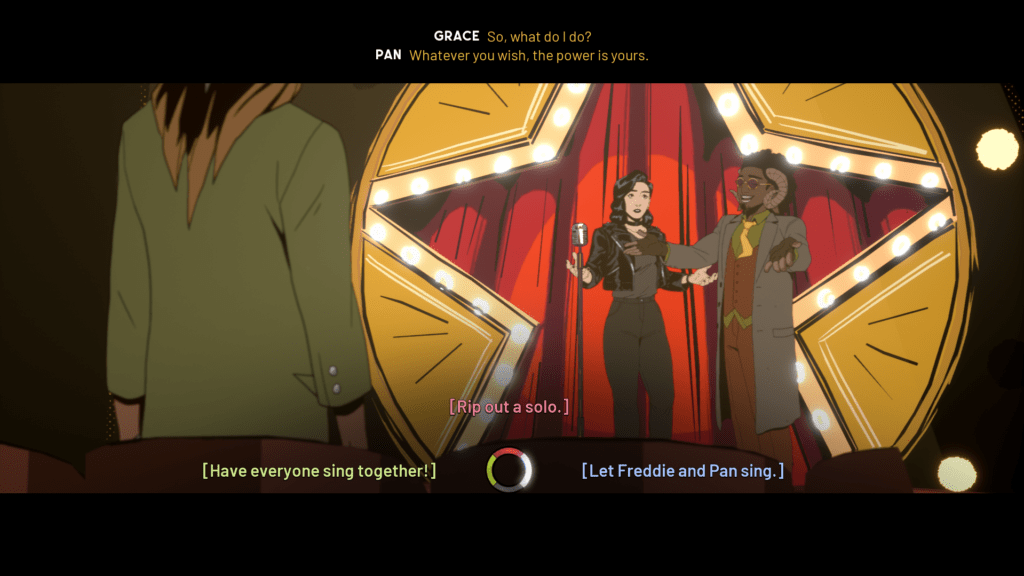
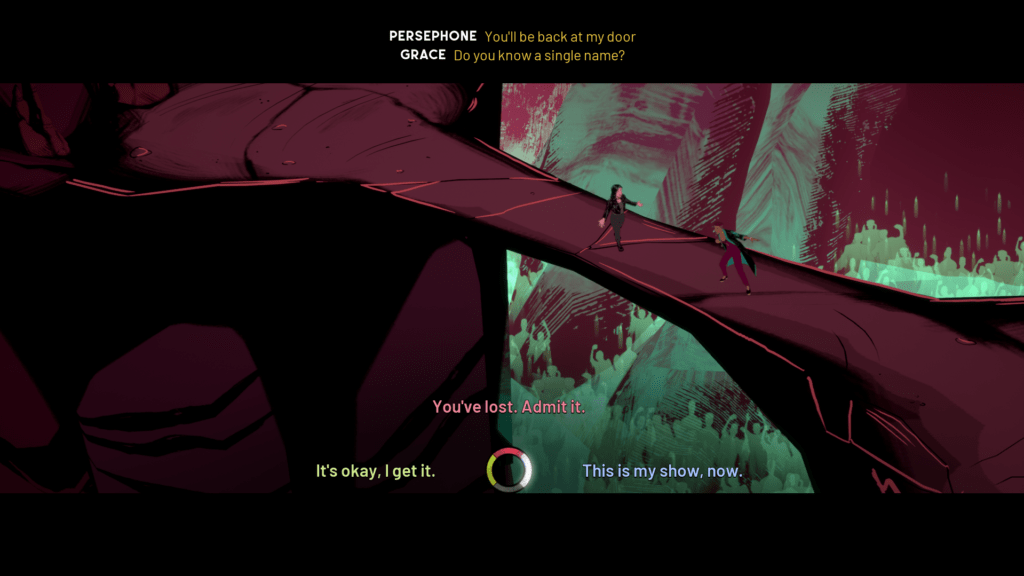
But where it gets really impressive is the staggering number of variables in the game. Not only do scenarios and dialogues change based on your major choices, it also takes into account your chosen personality trait, the evidence you’ve gathered in your investigations, and your relationships with each character; reflecting this across conversations and songs throughout the rest of the game.
It all sounds like a technical nightmare, and based on interviews with composer Austin Wintory (Journey, Assassin’s Creed Syndicate), it only gets more complex as you get further into it. The game purports to have “thousands of potential variations based on your choices”, and having played the game four times myself, I can assure you that each playthrough has contained something new and unique. Even now, I doubt I’ve seen every dialogue and lyric this game has to offer.
No two playthroughs are alike (so play it again!)
A huge component of Stray Gods is choosing Grace’s primary personality trait. Whether she’s Charming, Kickass, or Clever not only unlocks additional dialogue options, it also features a distinct musical style for each trait: Charming is theatrical and Disney-esque, Kickass is classic rock, and Clever is all about that jazz.
That being said, traits play a bigger role in the non-musical sections of the game where choosing one trait can lock out the others; whereas in the musical sections, players still have the freedom to select lyrics from any of the three traits. In fact, players are encouraged to swap freely between traits to tailor their outcomes, as sticking to one tends to lead you down a predetermined path.
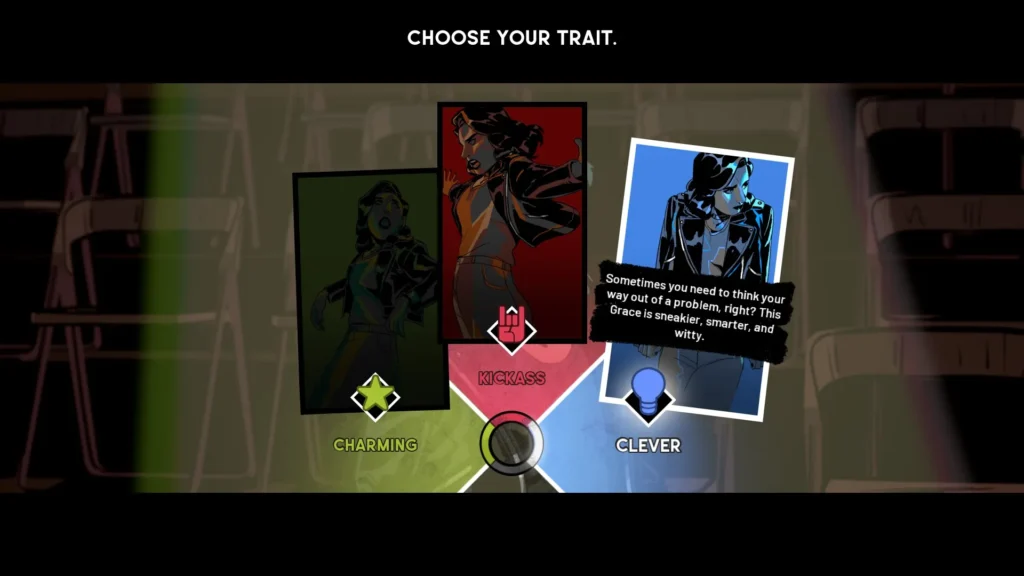
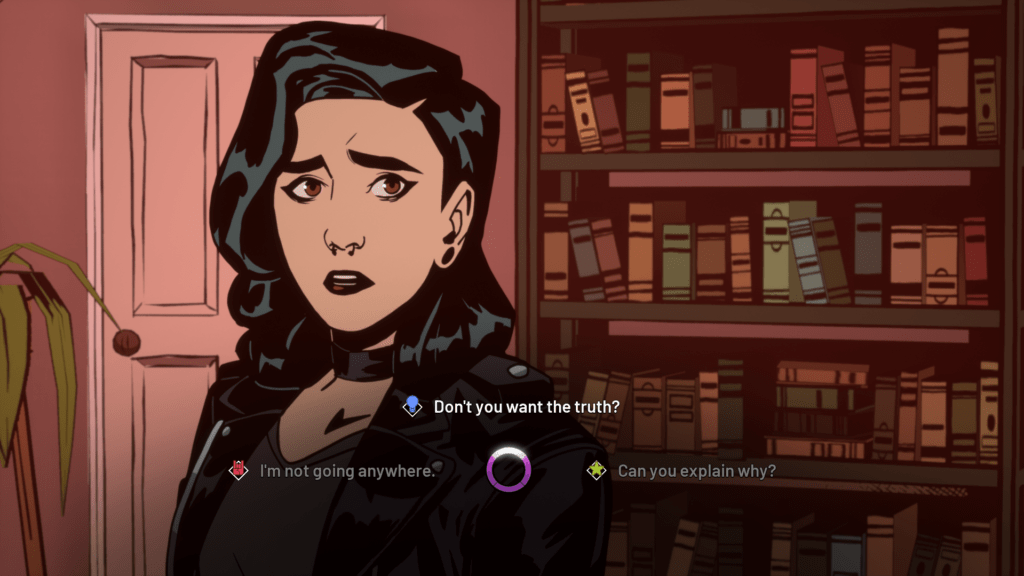
This is where the work of composers Austin Wintory, Tripod, and Montaigne shines the brightest, especially as a team that is relatively new to writing musicals. As Wintory shared in an Instagram post, each song in Stray Gods is a tangled web of choices and potential outcomes that is constantly evolving based on which traits you favour the most.
In my own playthroughs, I noticed the base genre of the song would follow the trait I selected the most often, and even when I chose a lyric under another trait, the base genre would remain the same. If you’re following my train of thought, that means unique lyrics are written and recorded for each trait in the style of all the other traits, in order to maintain a seamless listening experience no matter which choices you make.
That is enough to make Stray Gods a highly replayable game, if only to re-experience each song — and each of the four romances — from a completely different perspective each playthrough. However, you should note that there is no way to manually save or fast forward the game, so each new playthrough requires you to begin the 7-hour trek all the way from the beginning.
An emotional tale elevated by an excellent cast
Amidst this game’s technical achievements is an emotional tale about hope, courage, and self-discovery. Even though modern retellings of Greek mythology are a dime a dozen, Stray Gods presents an emotionally heavy perspective on the perils of immortality. Some of the recurring themes in the game include PTSD, dealing with grief, and finding purpose; all of which the game tackles with immense thought and grace (pun absolutely intended).
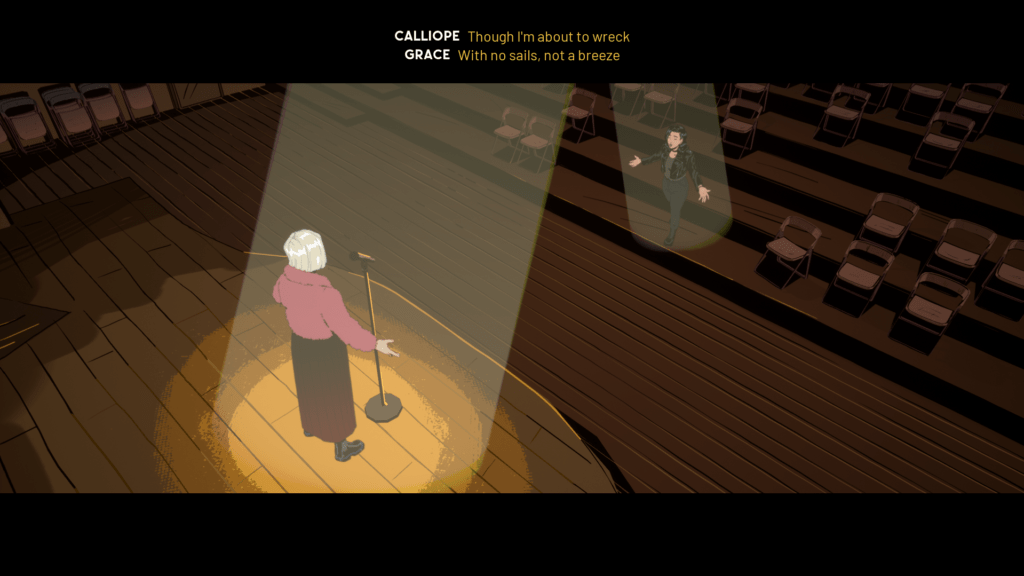
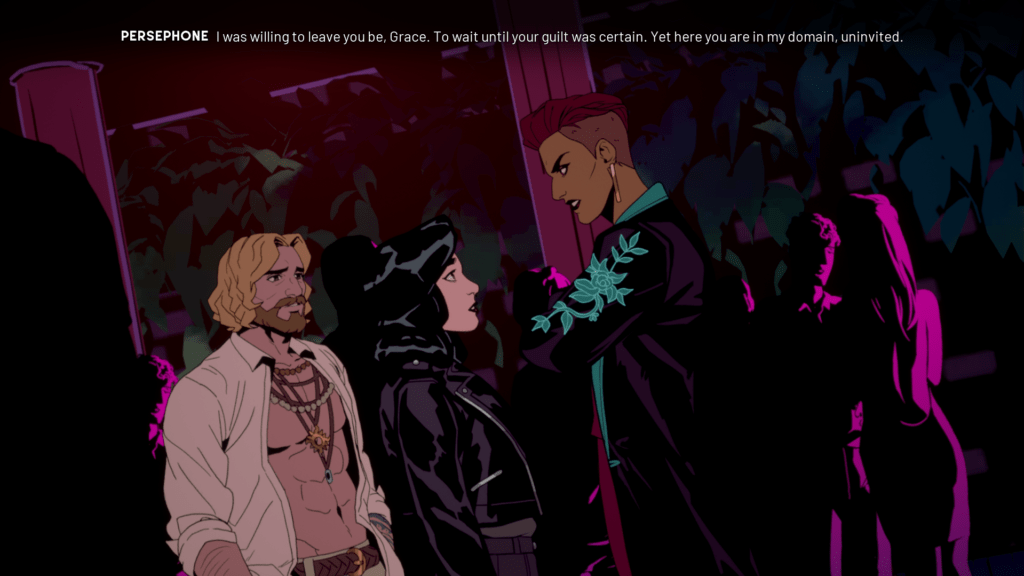
The story of Stray Gods is only elevated by its star-studded voice cast. Although its hard to pick favourites from this cast, some outstanding performances include the legendary Laura Bailey as Grace, Mary Elizabeth McGlynn as Persephone, Merle Dandrige as Aphrodite, and my personal favourite interpretation, Anjali Bhimani as Medusa.
Some of the cast are definitely more voice actors than singers, but I enjoyed the authenticity of having a mixed bag of singers and non-singers in the game. It also worked realistically with the world building, as the characters are compelled to sing when Grace uses her powers whether or not they actually have the singing chops.
Unfortunately the excellent vocal work is only hampered by subpar audio editing, mainly an airy noise that could be heard in the background of many voicelines in the non-musical sections. Since several scenes in the game don’t contain any background music, these audio imperfections are a little hard to ignore. All I can hope is that they fix this in future patches of the game.
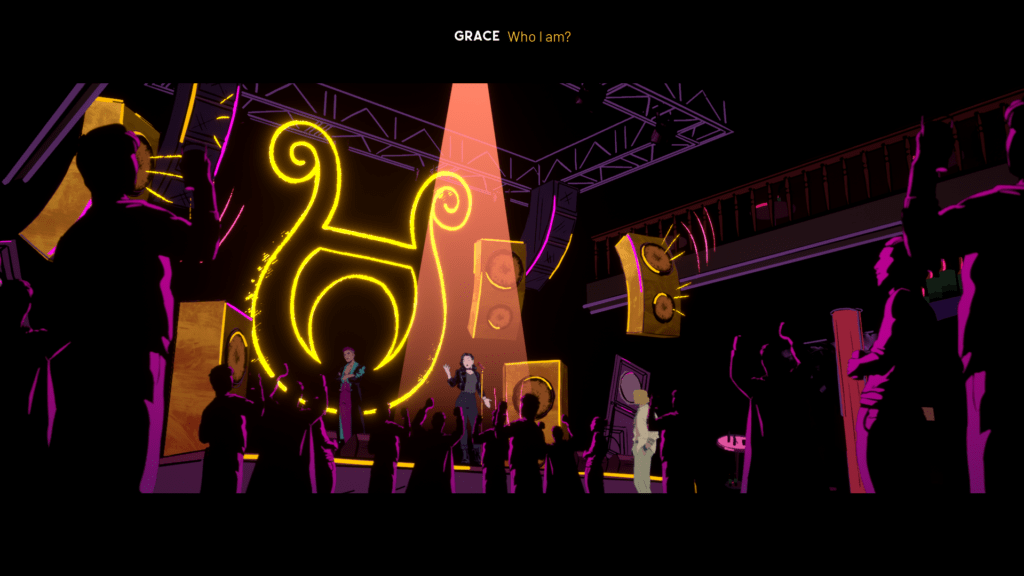
Verdict: We’re ready for an encore!
Stray Gods is an innovative and ambitious take on the choice-based genre that feels unlike any other game in past decades. The game earns our praise for its technical achievements alone, featuring thousands of possible musical combinations and high replayability. Its star-studded cast brings to life an emotional story about immortality and healing from trauma, although mildly hampered by subpar audio editing. Overall, a promising debut title from Summerfall Studios — and one that will remain in our playlists for a long time to come.



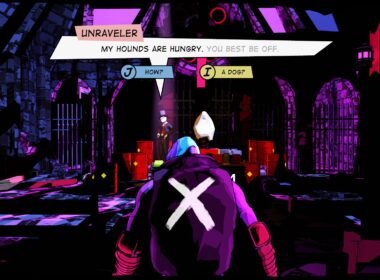

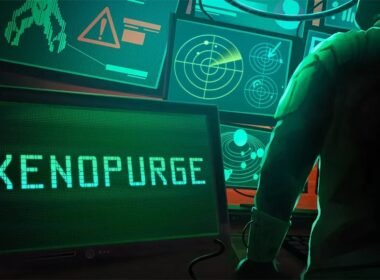
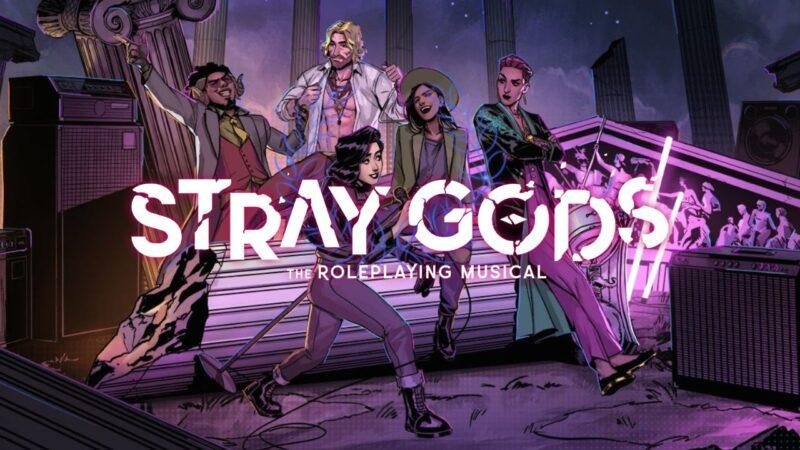
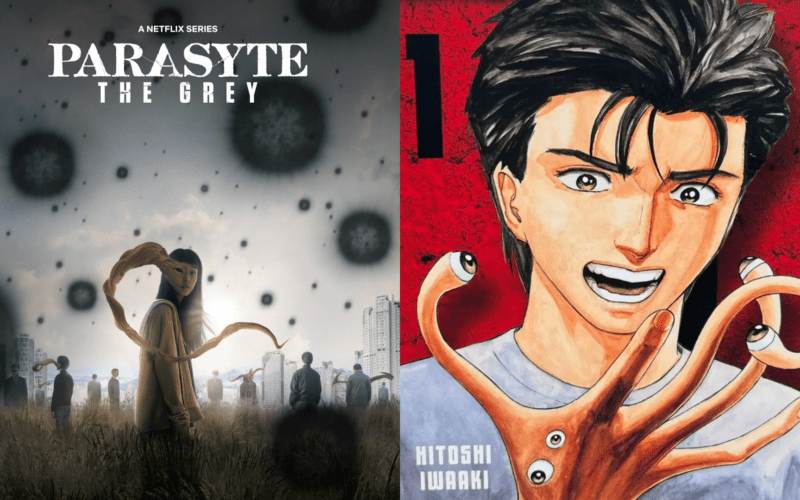
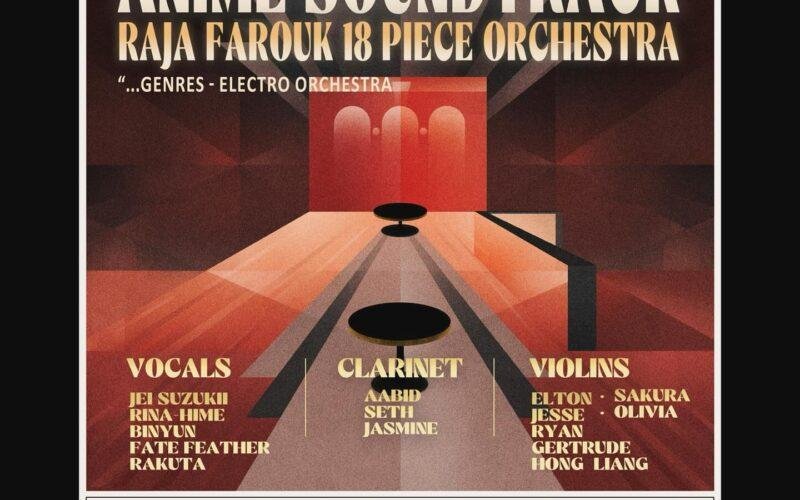




Comments 1